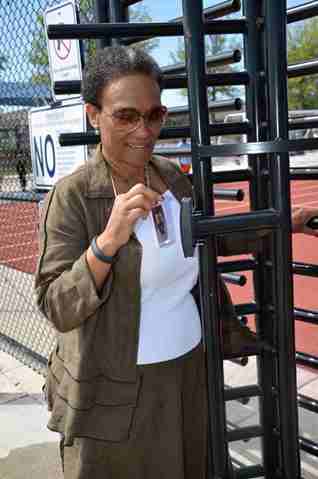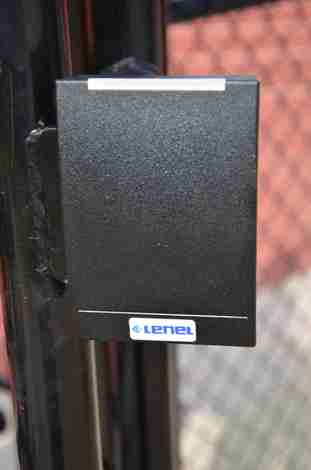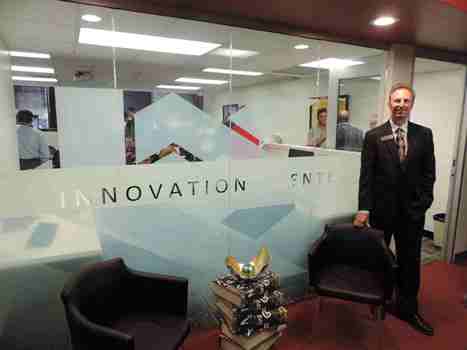
by Kelly Rogge
Kansas City Kansas Community College is back on track, the running track that is.
On Tuesday, Sept. 2, the track will reopen to the community.
The turnstile used by community walkers to access the track has been equipped with a lock that opens with a card issued by KCKCC. The system will allow the college to track the usage of the track and identify the frequency that walkers are using the athletic facility.
Michael Vitale, vice president of academic and student services at KCKCC, said the change is necessary due to some “misuse” of the facility. This includes multiple incidents of dogs, strollers and bikes on the track surface as well as unsupervised children climbing on the soccer goals and nets.
Both of KCKCC’s soccer teams practice on the soccer field, which the track surrounds. In addition, the track is used by the KCKCC track and field team.
“We made the change in access so community members could continue using the facility,” he said. “Allowing the community to continue using the facility helps promote good will between the community and the college. For several, this is the only location where they felt comfortable walking to help maintain their health.”
To use the track, patrons will need to obtain a Swipe-ID card, which will give them access to the track during the hours it is open to the public. To obtain a Swipe-ID card, walkers will need to bring a government-issued ID to the Campus Police, submit a completed application, pick up a copy of the track rules and have their picture taken for the identification card. The college is providing the first card for free. However, if it is lost or stolen, it will cost $25 to replace. All walkers will need their own identification card. Minors must have a parent or guardian’s signature. If they are 16 years or older, they must also have a government issued ID.
To accommodate those walking in the early mornings, the Campus Police department will be open at 5 a.m. Sept. 2 to issue Swipe-ID cards. Campus Police will have the following schedule for the remainder of September:
• 5 a.m. to 6 p.m. Monday through Thursday
• 5 a.m. to 4 p.m. Friday
Community members can go by Campus Police during these hours to obtain an identification card. College employees who want to walk on the track will also need to obtain a card from Campus Police.
For more information about the new track usage system, contact Mike Vitale, vice president for academic and student services at 913-288-7100.
Kelly Rogge is the supervisor of public information at KCKCC.


